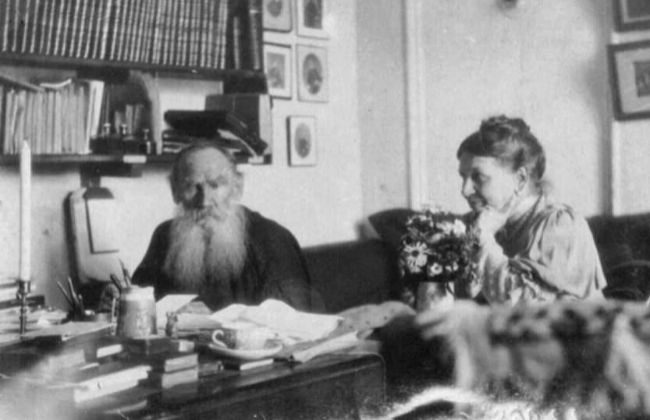From Sofia Tolstaia it was known that, in addition to raising the 13 children he had with Tolstoy, he passed the writer's manuscripts clean . It was her first reader. And she was also a writer, although in life she only published a collection of prose poems and stories for children. But that was not the only thing he wrote, his Diaries (1862-1919) are published in Alba. He put together a first novel, Natasha , whose manuscript burned before marrying 18 years old with Lev Tolstoy, who was 34. He wrote two more novels: Song without words and whose fault was it? , which had to wait a century since I wrote it to see it published.
Now the Xordica publishing house translates it for the first time in Spanish, by Marta Rebón. The book closes with an epilogue where Rebón and Ferrán Mateo tell the vicissitudes of this novel, give fundamental clues that help to place it in context and allow to understand this brief and tragic work as a reflection on the relations between men and women and the position of the woman .
The novel tells a simple story and is divided into two parts: in the first, Prince Prózorski becomes infatuated with Anna, who lives peacefully with his mother and sister and has received a rich training in almost everything: letters, art, languages, et cetera, at the height of its position. They get married, each one in love rather with the ideal he has built of the other, as will be seen later in the novel. He likes her, above all, his youth and his beauty. To her the promise of a sensitive soul. The two are blinded by their ideal of love and marriage. The first part ends when the first child is born: «It is not within my competence. When he grows up, it will be different, ”says Prózorski as soon as he sees his firstborn for the first time.
The second part returns to the couple 10 years later, and it does not seem that the reader has been deprived of anything very exciting: "The only change in his life had been the death, three years before, of the old princess." Now there are four children and family life in the countryside bores Prózorski, who seeks entertainment, feminine, it is understood, outside. She worries when he gets too flirtatious, partly because of jealousy, partly because of what they will say: "Anna was afraid that it could put her family's good name at risk." In addition, Anna wonders about the "woman's destiny": "Put the body at the disposal of a child with a breast and then the husband? One behind the other, always! But where is my life? Where is my life? That authentic self that once aspired to rise and serve God and his own ideals? Rendered, exhausted, succumb. I don't have a life of my own, neither earthly nor spiritual. And yet, God has given me everything: health, strength, talent ... and even happiness. Why, then, do I feel so unhappy? Anna refuses to give up the ideal, and her problem is the distance between her expectations and reality. Everything will change, or at least, open a possibility with the arrival of Dmitri Bejmétev, friend of Prózorski, sensitive and able to enjoy the little things of everyday life: a lesson for children, a walk and reading aloud. Needless to say, Bekhmetev and Anna will fall in love. But it is not a book about adultery , which is not consummated, at least in that direction, but about the own and other people's deceptions that make us make some decisions or others, which are the ones that build lives.
It is a novel about marriage, understood as a pact with the other; about the firm decision to put the family before everything else, including happiness. Sofia Tolstaia was trying to respond to the ill-fated image of the women that her husband had given in Sonata to Kreutzer, a book that had angered Tolstaia for two reasons: first, in case it was read in an autobiographical key; and second, by how he raised marital relations. His wife's response had to wait a century to see the light , she herself thought it was better not to publish it. The literary conversation between the marriage of writers about their non-personal differences but of concept is brief: the voice of Sofia Tolstaia, the voice of women, was not heard.
Whose fault was it? It is like the Russian precedent of The Madison Bridges , it has the dignified and elegant touch of Jane Austen's novels, as well as a rare tenderness and innocence . It is not fair, but it does not make Anna a hero or Prózorski a villain. Rather, he understands that life, in its tragedy and in its beauty, in its misery and in its joy, is sometimes the most random and inexplicable.
According to the criteria of The Trust Project
Know more- culture
- literature
- Feminism
- Russia
TendènciesA autumn with Sylvia Plath
The Paper SphereLydia Yuknavitch: "The idea that suffering makes you stronger is a myth"
Literature Elizabeth Gilbert, the multiple layers of femininity

